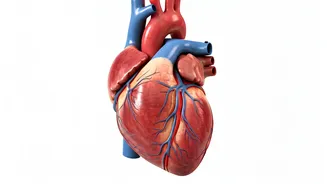Defining Total Wellbeing
Health encompasses more than just the absence of disease; it's a holistic state of complete physical, mental, and social well-being, as defined by the World
Health Organization. Physical health involves maintaining a body that functions optimally, achieved through regular exercise, a balanced diet, and sufficient rest. Mental health emphasizes emotional and psychological well-being, including managing stress, practicing mindfulness, and seeking support when needed. Social health pertains to the quality of relationships and the ability to interact effectively with others. Each of these components is interconnected, impacting overall health. Prioritizing these facets together helps build a robust foundation for a thriving, fulfilling life. Focusing on health also means making informed decisions, such as understanding the significance of vaccines for preventing illnesses and understanding when to seek expert medical advice.
Nutrition and Diet
Nourishing your body with a balanced diet is crucial. The basis of a healthy diet includes fruits, vegetables, whole grains, lean proteins, and healthy fats. It is important to limit the consumption of processed foods, sugary drinks, and excessive amounts of unhealthy fats. Prioritizing nutrient-dense foods provides essential vitamins, minerals, and antioxidants, supporting bodily functions and protecting against chronic diseases. Portion control is a key element of nutritional health; eating appropriate amounts helps manage weight and prevents overeating. Drinking enough water also aids digestion, nutrient absorption, and body temperature regulation. Building meals around colorful produce, lean proteins, and whole grains offers both a range of nutrients and a spectrum of flavors, improving the eating experience and encouraging long-term healthy eating habits.
Physical Activity Benefits
Regular physical activity is an essential aspect of maintaining overall health. Exercise doesn’t just help manage weight, it also improves cardiovascular health, strengthens muscles and bones, and boosts mood. Engaging in at least 150 minutes of moderate-intensity or 75 minutes of vigorous-intensity aerobic exercise per week can yield significant health benefits. This can include activities like brisk walking, jogging, swimming, or cycling. In addition to cardiovascular exercise, incorporating strength training exercises helps build and maintain muscle mass, crucial for metabolism and bone density. Furthermore, flexibility exercises, such as yoga or stretching, improve range of motion and reduce the risk of injury. Finding activities that you enjoy makes it easier to stay consistent. Whether it’s dancing, hiking, or team sports, integrating physical activity into your daily life contributes to a healthier, more energetic lifestyle.
Mental Wellbeing Matters
Mental health plays a vital role in overall well-being. It is important to manage stress, practice relaxation techniques, and prioritize self-care. Incorporating mindfulness and meditation into your routine can reduce stress and improve mental clarity. Making time for hobbies, spending time in nature, and engaging in activities that bring joy contribute to emotional balance. Maintaining healthy relationships and seeking social support when needed is critical for mental well-being. If you are struggling with your mental health, it’s okay to seek professional help. Therapists and counselors can offer support and strategies for managing challenges. Prioritizing mental health enables you to cope with challenges, enhance resilience, and improve your overall quality of life.
Preventative Healthcare Steps
Preventative care is essential for maintaining health. Regular check-ups with healthcare professionals, including physical exams and screenings, can help detect potential health issues early, when treatment is often most effective. Vaccination is another cornerstone of preventative care, protecting against infectious diseases. Eating a balanced diet and practicing good hygiene are also vital in preventing illness. Staying informed about health risks and making informed choices about lifestyle habits supports long-term health. Taking proactive steps like regular exercise, a balanced diet, and stress management will reduce the likelihood of developing health problems. Preventative care emphasizes early detection and proactive measures, ensuring a longer, healthier, and more fulfilling life.












